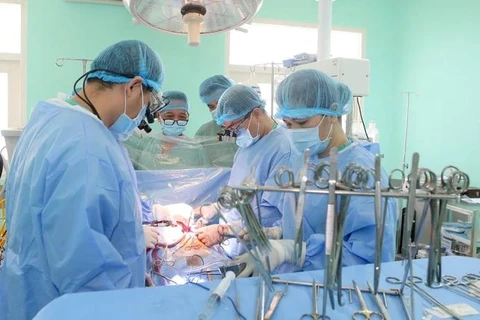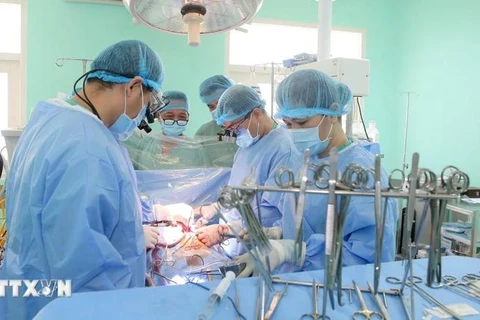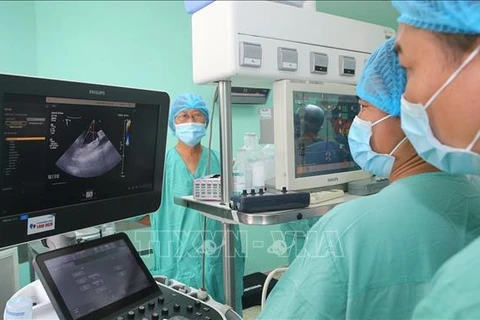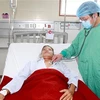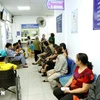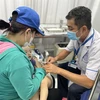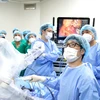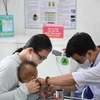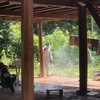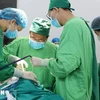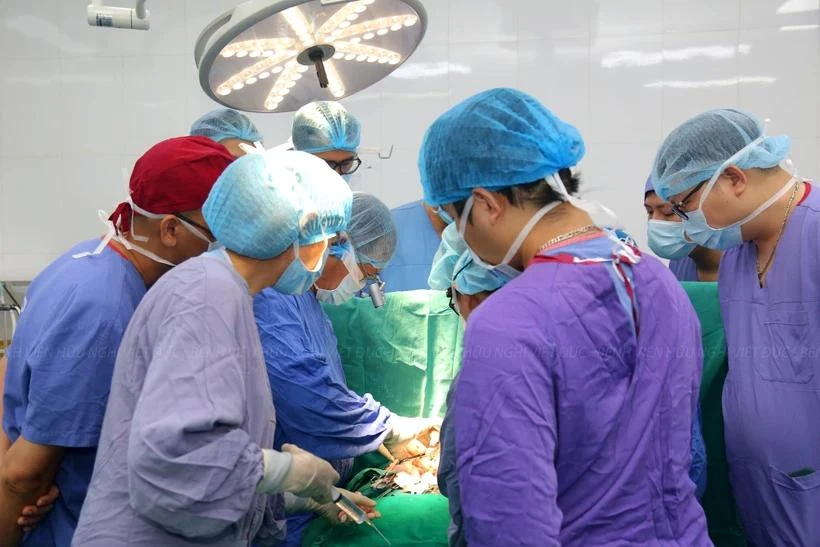
Hanoi (VNA) - Doctors at the Hanoi-based Viet Duc University Hospital have successfully performed a groundbreaking surgery, transplanting a trachea segment from a brain-dead donor and reconstructing an oesophageal stricture for a patient from the central province of Thanh Hoa, its Director Duong Duc Hung said on August 7.
According to Hung, this case is one of the rare trachea transplants combined with oesophageal reconstruction surgeries in the world and represents the first successful implementation of such a procedure in Vietnam.
He said this success reaffirms the expertise of the Viet Duc Hospital's physicians and positions Vietnam on the global map of trachea transplantation, thereby enhancing the credibility of the nation's healthcare sector.

In July 2022, the 25-year-old man, named L.V.N., was diagnosed with multiple injuries, including traumatic brain injury, facial fractures, chest trauma and liver injury, after a traffic accident.
He underwent surgery to repair facial bones and the neck area and received conservative treatment for other organ injuries.
After the surgery, he required intensive care, including a tracheostomy to facilitate breathing.
Once stabilised, he was transferred to a local hospital for further treatment.
One month after the tracheostomy, L.V.N. was considered for conservative treatment but failed the tracheal dilation and stenting procedures.
Subsequent surgery to reconnect the trachea at a Hanoi medical facility was unsuccessful due to the complex and extensive tracheal stricture, leading to a permanent tracheostomy.
Over the two subsequent years, he relied on gastrostomy feeding and could only breathe through the tracheostomy, which often resulted in ulceration, bleeding and infections.
In May 2023, after a series of anti-scar injections at the stricture site, L.V.N. developed a tracheo-oesophageal fistula, necessitating a gastrostomy for feeding. He continued regular check-ups at the Viet Duc Hospital.
Given the patient's complex injuries, the hospital’s multidisciplinary team, composed of specialists in ear, nose and throat, gastroenterology, thoracic surgery, anaesthesia, tissue banking and nutrition, agreed on a two-stage surgical plan.
The first stage involved resection and reconstruction of the cervical oesophagus stricture, while the second stage focused on reconstructing the larynx and transplanting a tracheal segment from a brain-dead donor.

The first stage of the surgery was performed in April, followed by the second stage in May, which included trachea transplantation and stent placement. After intensive post-operative care, the patient was discharged on June 25.
One month after discharge, L.V.N. showed significant improvement, gaining 5kg, with well-healed surgical scars, normal oral intake and nasal breathing. Three months after the operation, he gained 10 kg, maintained good health and continued to breathe and eat normally. He is scheduled to have the tracheal stent removed between the fifth and sixth months.
Hung said that this success offers hope for patients with long tracheal segment injuries over 6cm, marking a significant advancement in medical science and surgery in Vietnam.
He emphasised that trachea transplant surgery remains a challenge in the world, with few short-term success reports.
This groundbreaking procedure at the Viet Duc Hospital represents a promising development for future complex surgeries and the advancement of the country's healthcare capabilities.
Hung added that there have been 16 cases of brain dead organ donation at the hospital so far this year, with four in the past week./.
